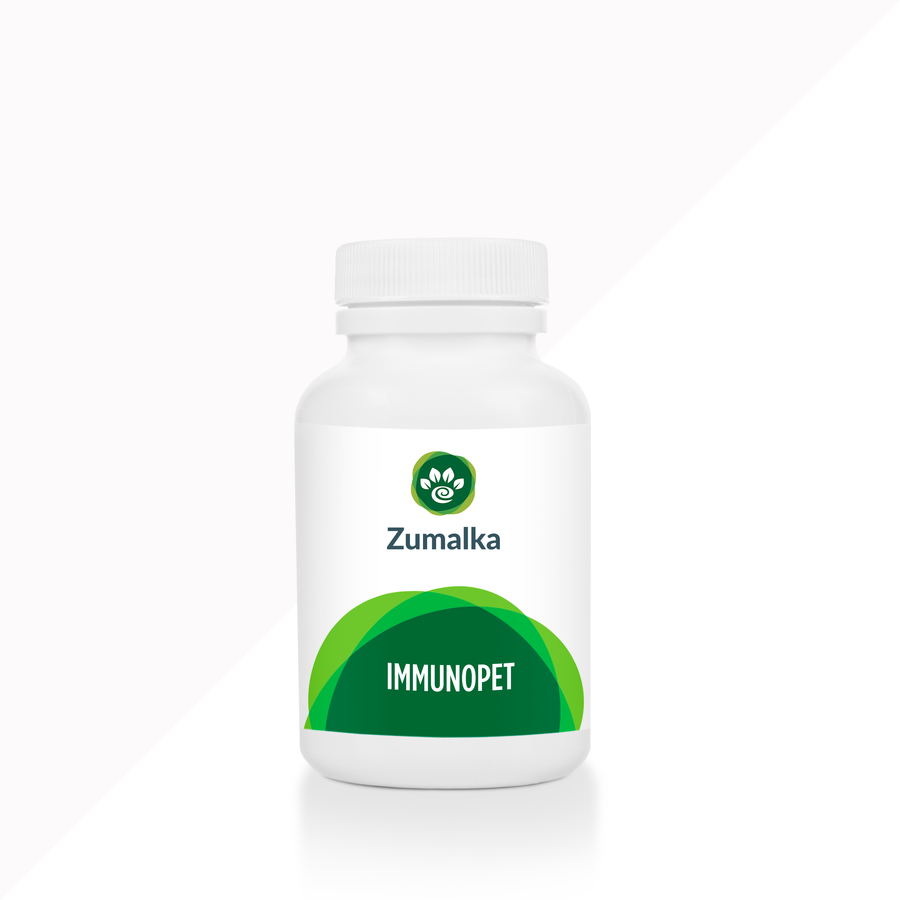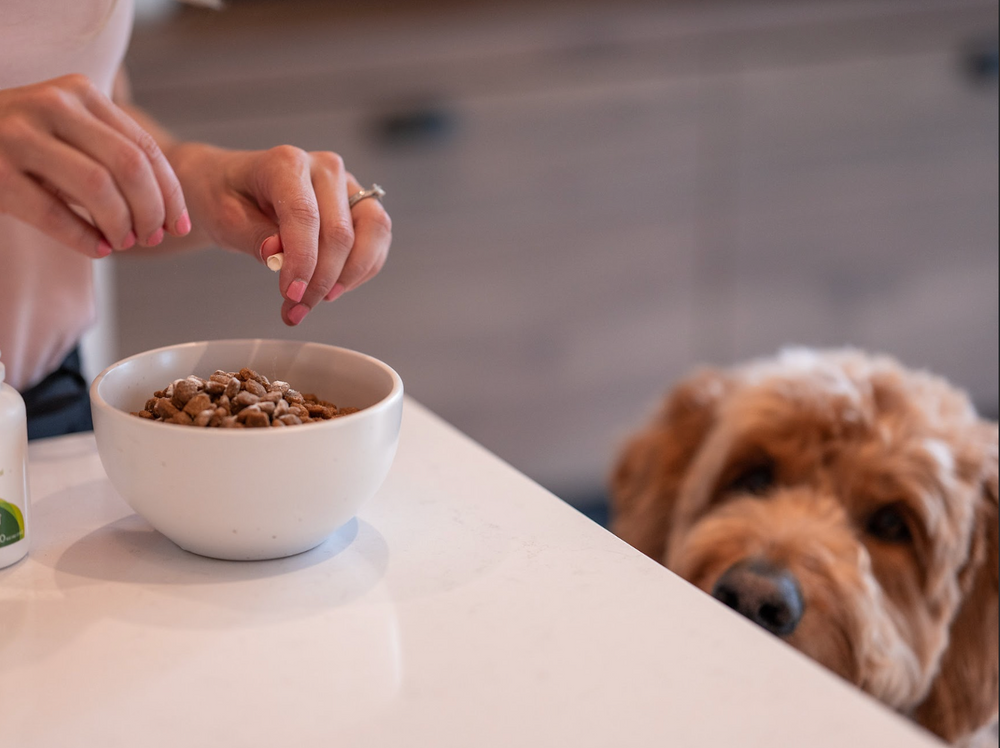Can Cats Eat Dog Food? Risks and Safe Alternatives
If you're like most pet parents, you've probably wondered: can cats eat dog food? This blog post will answer that question once and for all. While this question may sound rather simplistic, you'll be surprised with the insights you'll discover as we go along. Let's dive right in!
So What Happens If a Cat Eats Dog Food?
It depends on the frequency with which cats eat dog food.
Although nothing problematic will happen when cats occasionally eat dog food, enjoying different textures, flavors, sights, and smells, things will take a different turn when this becomes a regular habit. Regular consumption of dog food can lead to nutritional deficiencies and health problems, such as obesity or kidney issues.
A cat's nutritional needs are significantly different from those of a dog.
Cats cannot eat dog food regularly due to their different evolutionary backgrounds. Unlike dogs, cats need certain nutrients like taurine and vitamin A, which they cannot produce naturally and must obtain from their diet.
While occasional consumption of dog food won't harm your cat, regular intake can lead to serious health consequences. Therefore, putting your cat on a dog food diet is dangerous. This is why being meticulous about the cat food you choose is crucial.
Cats eating dog food will suffer health consequences.
It's important to feed cats a diet specifically formulated for them because they have unique nutritional needs. Cats require certain nutritional components, which are not found in dog food.
The absence of these essential nutrients can lead to severe health issues, including poor coat condition, muscle wasting, bone deficiencies, urinary tract infections, weakened immune systems, blindness, and even heart disease.
Although it’s not a cause for concern if your feline friend occasionally nibbles on dry dog food, it’s crucial to prevent this from becoming a regular habit to avoid potential health complications, such as nutrient deficiencies and associated illnesses.
That being the case, it’s essential to ensure your kitty regularly eats high-quality cat food designed to meet their unique nutritional needs.
Key Differences Between a Cat's Diet and a Dog's Diet

In my experience as an animal homeopathy expert and a pet mom, I've learned that cat and dog food are not the same. Besides differences in textures and flavors, each type of food caters to distinct nutritional needs.
In this part of our discussion, we'll explore key nutritional components in more detail to help you understand their importance in your cat's diet and overall wellness. By delving into these details, you'll see why these nutrients are vital for keeping your feline friend happy and healthy.
Higher protein requirements
Did you know that cats are classified as "obligate carnivores?" This means their bodies are specifically designed to gather and process essential nutrients predominantly from animal-based proteins, which they cannot produce on their own.
Compared to a dog's digestive system, a cat's digestive system cannot process plant-based foods as efficiently. As obligate carnivores, cats are designed to digest animal fats and meats more effectively than carbohydrates from plants.
Taurine is crucial
Taurine is an essential amino acid commonly found in cat food but typically absent in dog food. This difference arises because cats cannot produce sufficient taurine on their own, making it a crucial dietary component for them.
Akin to other amino acids, taurine plays a vital role in supporting ideal vision, cardiovascular health, digestion, neurological development, reproductive health, and overall immune system function in cats. Ensuring that cats receive adequate taurine in their diet is essential for their well-being and longevity.
Vitamin A and Arachidonic Acid must be present
Vitamin A and arachidonic acid are crucial to a cat's nutritional needs. These nutrients play a vital role in proper cell growth and development. Additionally, they help maintain normal vision, promote healthy skin and coat, support reproductive health, and bolster the immune system to keep infections at bay.
Cats cannot convert Vitamin A from beta-carotene or arachidonic acid from fatty acids, which is why these nutrients are typically included in most commercial cat foods. Additionally, the requirement for these nutrients increases depending on the cat's life stage, necessitating a diet that adapts to their changing needs.
Differences in taste and texture
The differences between cat food and dog food are most obvious in their texture and size. Cat food is smaller, finer, and has a pasty consistency compared to dog food. Given these differences, maintaining a dog food diet for your cat can be tricky because cats require specific amounts of nutrients that dog food may not provide.
Why You Should Be Very Meticulous About Cat Food

It's not just the different nutritional components of cat food that you should consider. The serving portions are also entirely different between these two types of pet food. In simpler terms, feeding your cat dog food regularly might lead to overfeeding.
Obesity and being overweight can have drastic effects on cat health, leading to increased vulnerability to various diseases and illnesses. These include diabetes, arthritis, heart issues, fatty liver, urinary tract infections, a weakened immune system, a shorter lifespan, and even cancer.
And remember: cat food and dog food are not the same! Can cats eat dog food? Yes, but only in moderation. Is dog food bad for cats? No, as long as it is consumed occasionally.
7 Healthy Cat Treats Recommended By Vet and Pet Nutritionists
Now that we've covered what can happen when cats eat dog food on a regular basis, I'd like to share some healthy treats your pet can enjoy. The best part is that these treats are recommended by vets and pet nutritionists! While they can be enjoyed as standalone treats, they can also be served alongside regular cat food.
Frozen bone broth
Treat your cat to a homemade "popsicle" made with frozen bone broth, especially on a hot day. Diana Farrar of Fifi & Fidos Pet Boutique & Holistic Nutrition Center in Texas shares this healthy dog and cat treat recipe. Bone broth is not only delicious but also packed with nutrients, making it a perfect cooling treat for your pet.
“Frozen bone broth with a bit of raw goat’s milk is always a favorite,” Diana says, adding, “I'm not anti-treats. I'm pro quality treats—in moderation.”
Frozen banana slices
If your cat enjoys frosty treats, Christina Ottaviano of Woofs and Whiskers Pet Care in Pennsylvania recommends freezing some banana slices and tossing them to your feline friend. Bananas are full of potassium, fiber, and other vitamins, making them a nutritious treat.
However, because they are also high in sugar, be sure to limit your pet's intake to just a slice or two at a time.
Dried sweet potatoes
These healthy bites are tasty, chewy, and a pet favorite! Becky Mobley of Wild Kingdom Pet Supplies in Texas adds that they’re full of nutrition, to boot. “Sweet potatoes are great for digestive health because they’re high in dietary fiber,” she relates.
“They’re also low in fat and contain vitamin B6, vitamin C, and manganese, [and are] rich in the antioxidant beta-carotene,” adds Becky.
Carrots
Does your feline companion prefer something crunchy? Melissa Whitton of Most Valuable Pets in Kentucky suggests using carrots as a low-fat yet tasty treat. Carrots are great for vision and have a taste that many cats love!
Other veggies that make wonderful treats for your cat include green beans, pumpkin, broccoli, zucchini, and cucumbers. These vegetables are packed with nutrients and can be a healthy addition to your pet’s diet.
Chicken livers
Janis Gianforte of Nupro All Natural Supplements says that chicken livers are "a good health-boosting treat." This drool-worthy snack is packed with protein but is high in fat, so overweight pets should only get a bite or two.
Cats who are already on a raw diet can eat livers raw as long as they come from a safe source, like a trusted butcher. For non-raw eaters, cooking the livers is the safest option. You can get livers from your local butcher or the meat counter at a specialty grocery store.
The next time you buy a whole chicken or turkey, don’t toss all the giblets. Pets can eat the gizzards and heart, too. Just remember that necks should only be fed uncooked, so save those for raw eaters only. Be sure to set these organs aside for your furry friend!
Single-ingredient treats
We get it: sometimes, you just need the convenience of pre-bagged treats, and that’s fine! According to Johnna Devereaux of Fetch RI in Rhode Island, the best dog and cat treats are natural, single-ingredient bites.
"Any type of naturally-dehydrated, single-ingredient organ meat, if sourced responsibly and from an animal fed properly, is a great treat," Johnna says. These treats are not only convenient but also healthy, providing your pet with essential nutrients without any added fillers or preservatives.
Pre-made natural food
Here’s another easy snack hack: buy some soft, all-natural pet food packaged in rolls, then cut it into cubes and stick them in the freezer.
"Try buying a rolled dog or cat food (like Redbarn's Grain-Free Chicken Rolls) and using it as a training treat," suggests Kyle Goguen of Pawstruck.com. "You can slice the roll into bite-sized squares, then freeze it. Use those as treats, and your pet won’t even realize they’re eating nutritious food!"
See, cats can find natural treats enjoyable, too! It’s all about finding something as tasty as it is healthy, and of course, practicing moderation. Remember, there are also plenty of other ways to spoil our pets that don’t involve food.
Try treating yours to some extra snuggles, a long walk, a round of fetch or feather-chasing, or a new toy.
A Natural Product Designed to Help Support Your Cat's Gut Health
While your cat won't suffer from any immediate health problems from eating dog food, it will be vulnerable to gastrointestinal issues if its body is low on probiotics. Probiotics are essential for maintaining a healthy gut flora, which supports digestion and overall health.
Zumalka's PROBIOPET is designed to stabilize your pet’s digestive system health. If you are looking for a reliable probiotic to protect colon function and assist with issues such as constipation, diarrhea, bloating, and gas, PROBIOPET is worth checking out.
This natural product also supports healthy gut flora, making it an excellent choice for overall digestive health.







Hi Donna, Thank you for your comment. We appreciate your thoughts. I can assure you that our site is legit. However, some comments do come though and get approved too quickly but we have reviewed the comment you speak of and taken it down. We thank you for your attention and letting us know about it.
If all comments are approved before being published, how does something like the first comment get through the “review”? Is this site legit? Concerns me when spelling errors like “Stay Connect” are on a site…..
Leave a comment